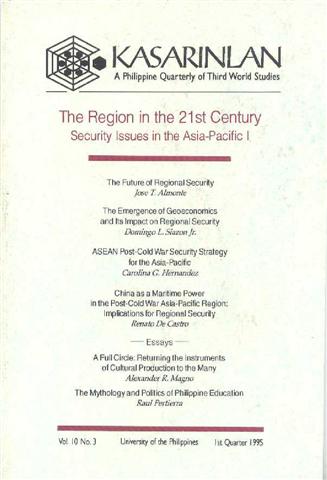The Future of Regional Security
Abstract
This article examines the security outlook for the Philippines and neighboring countries in East Asia, in particular from the political and economic context of the region. It explores how economic growth, the increased independence of the region’s political systems from western (particularly U.S.) influence, cultural concerns and social change shape regional security.While the article highlights the resistance of some countries within East Asia from the West, it argues that the continued presence of U.S. troops in the region is central to maintaining stability in the area. Conversely, it identifies China as a possible threat to stability in East Asia. A case study analyzing China’s occupation of Mischief Island in the Philippines demonstrates this. The paper argues that ‘multilateralism’ is the way of the future in East Asia in relation to regional security, as well as broader political and economic issues. Multilateralism encourages countries to form networks with other countries in the region through cooperation and collaboration. This will ensure that East Asia is linked in a community of common interests- a network that presents a united front on issues of regional security and the development of the region.
How to Cite
ALMONTE, Jose T..
The Future of Regional Security.
Kasarinlan: Philippine Journal of Third World Studies, [S.l.], v. 10, n. 3, june 2007.
ISSN 2012-080X.
Available at: <https://journals.upd.edu.ph/index.php/kasarinlan/article/view/1682>. Date accessed: 23 aug. 2025.
Section
Features
By submitting a manuscript, the authors agree that the exclusive rights to reproduce and distribute the article have been given to the Third World Studies Center.



